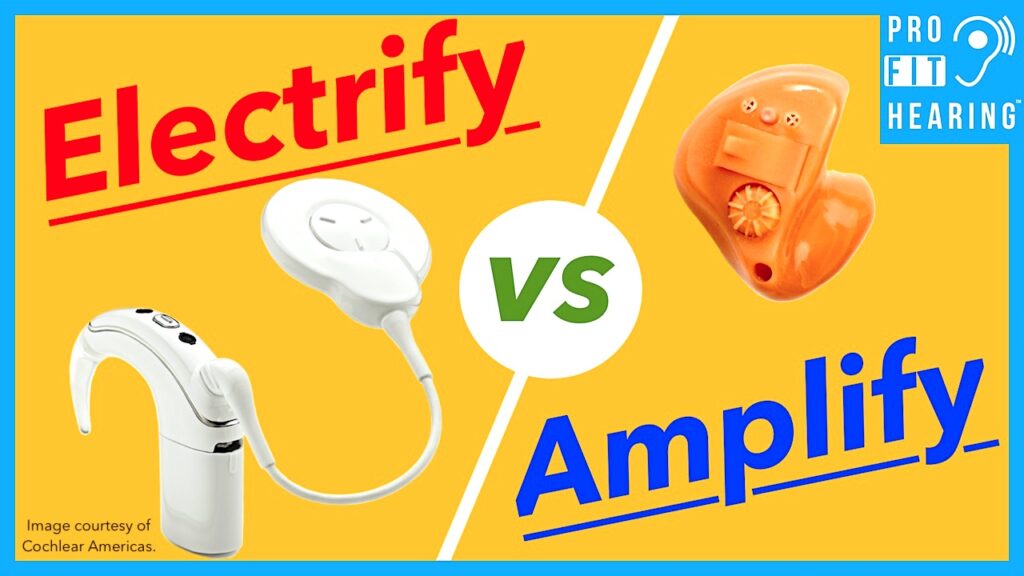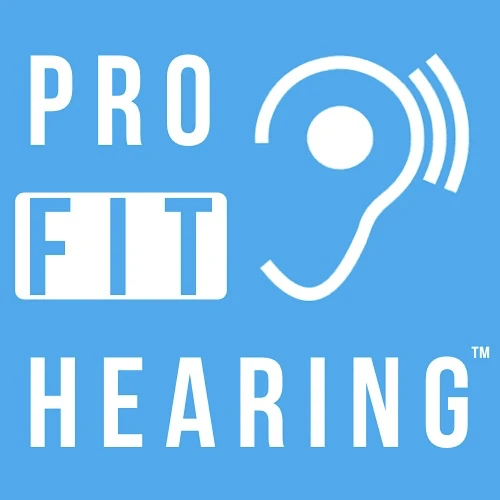Hearing Aid vs Cochlear Implant

Hearing Aid vs Cochlear Implant
Hearing aid vs cochlear implant – what’s the difference, and how can these devices help you hear your best? In this post, I’ll discuss these two types of hearing device technology.
SUBSCRIBE to our YouTube channel for weekly videos!
Hi, I’m Dr. Derek – audiologist, audio engineer, and musician with ProFitHearing.com bringing you the best insight in today’s latest hearing aids, headphones, and audio technology to improve your life. If you have concerns about your hearing, always consult with your local physician or audiologist.
If you’re interested in hearing aids, check out my free eBook HERE.
Hearing Aid vs Cochlear Implant – Basics
When we have hearing loss, we experience reduced hearing sensitivity for different frequency bands. So, for example hearing loss in the high frequencies is very common especially as we get older and it impacts our ability to hear the consonants in speech. High frequency hearing loss reduces speech clarity making it harder to understand what someone’s saying especially in background noise.
Hearing Aid
One type of hearing device technology is a hearing aid. A hearing aid fits inside or behind the ear, and it uses microphones to pick up all the sound in your environment. A computer chip inside processes the sound so that noise is reduced and speech sounds are amplified. Hearing aid settings are based upon your hearing test results that are programmed into the hearing aid. A hearing aid’s goal is to improve speech audibility and clarity for improved communication.
Cochlear Implant
Another type of hearing device technology is a cochlear implant. A cochlear implant is surgically inserted under the skin near the ear, and an electrode array is inserted into the inner ear or cochlea. This electrode array electrically stimulates the auditory nerve and overrides our natural hearing mechanism. In addition to the surgically inserted electrode, a sound processor device is placed behind the ear or on the head. This sound processor connects to the implanted electrode via a coil of wire and a magnet.
The sound processor uses microphones to pick up all the sounds around you. The sound is processed and transformed into electrical impulses. These electrical impulses stimulate different areas of the inner ear or cochlea so that we can perceive sounds across the frequency range. Over time the sound levels are adjusted as you acclimate and can tolerate louder sound. Hearing with a cochlear implant is very different then with a hearing aid. Your brain also needs time to adjust to the sound of a cochlear implant, so you’ll need to re-learn how to hear and understand speech this way.
Advantages?
Now, why would you use a hearing aid over a cochlear implant or vice versa? Well, first consult with a local audiologist to determine whether either device is appropriate for your specific needs. An audiologist would also collaborate with a physician like an ear, nose, and throat doctor or ENT to determine whether someone is a candidate for a cochlear implant. Generally speaking, a cochlear implant is reserved for someone who does not find enough benefit from hearing aids. Your audiologist or physician can review your history and test results to help you determine the best solution.
Hearing Aid vs Cochlear Implant – Your Thoughts?
Let me know what questions you have about hearing aids or cochlear implants in the comments below. If you’re interested in learning more about today’s latest hearing aid technology, go to https://www.youtube.com/profithearing and check out all the videos on our YouTube channel.
-Dr. Derek
